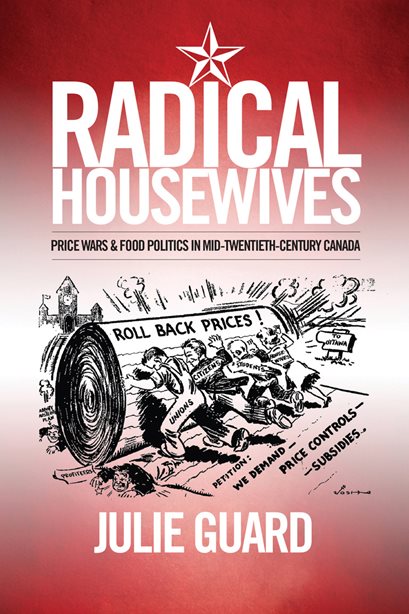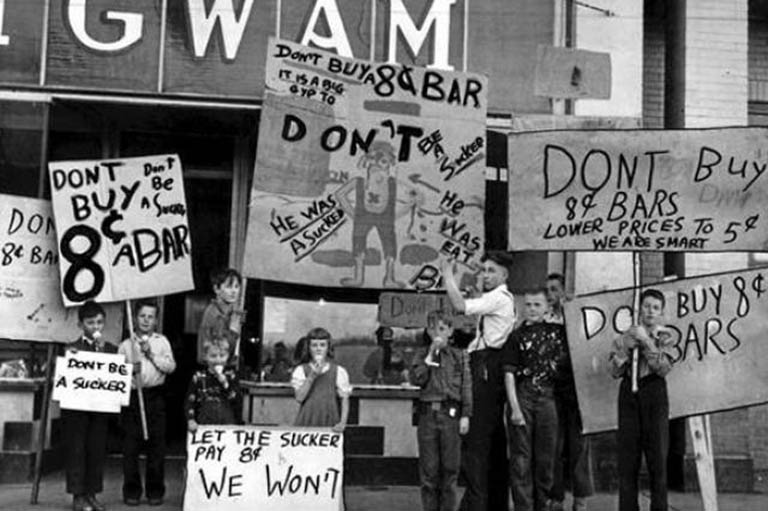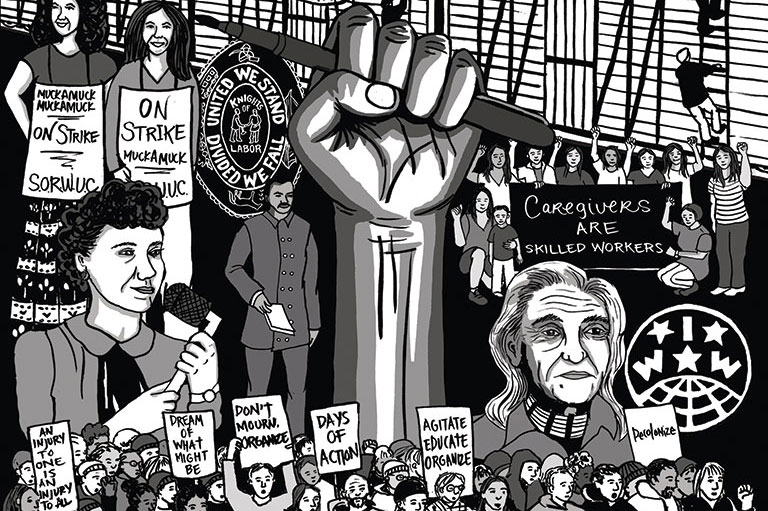Radical Housewives

Radical Housewives: Price Wars and Food Politics in Mid-Twentieth Century Canada
by Julie Guard
University of Toronto Press
311 pages, $29.95
In Radical Housewives, University of Manitoba labour studies professor Julie Guard writes about the left-leaning Housewives Consumers Association, which pressured governments to lower prices on essential food items for Canadian families.
Active from 1937 until the early 1950s, the Housewives were spread across the country and gained wide support. Their biggest impact came during the Second World War, when the federal government implemented price controls for most goods. Once the war was over, they made the case that, if prices could be controlled during war, why couldn’t this continue afterwards?
The organization succeeded in affecting many large, profiteering food corporations, and even children joined in with a boycott of candy bars in the late 1940s. But with the coming of the Cold War and a communist scare in Canada, the Housewives lost their legitimacy, Guard writes, because of “the intrusive surveillance work of the RCMP and its own official encouragement of anti-communists in the labour movement, the media, and the wider community.”
Although there were communists among the Housewives, the group in fact included a broad spectrum of political ideas. In her book, Guard tells a fascinating story of this littleknown but very influential movement in mid-twentieth-century Canada.

Our online store carries a variety of popular gifts for the history lover or Canadiana enthusiast in your life, including silk ties, dress socks, warm mitts and more!
Themes associated with this article
Advertisement








